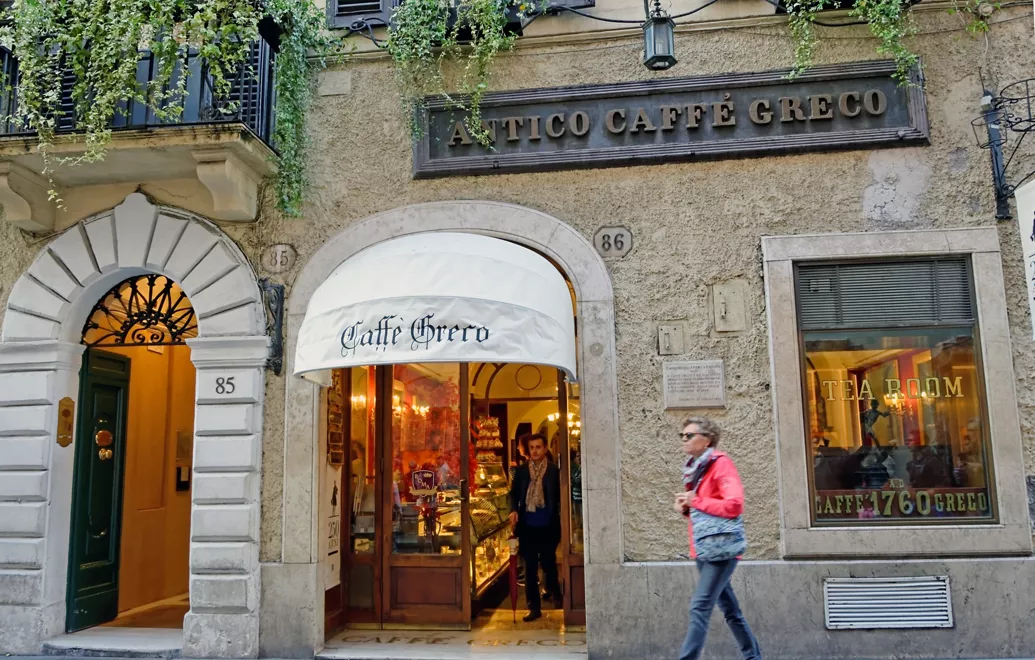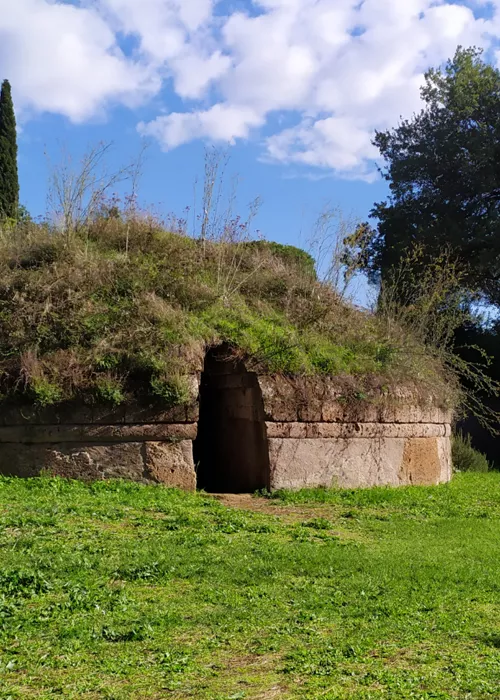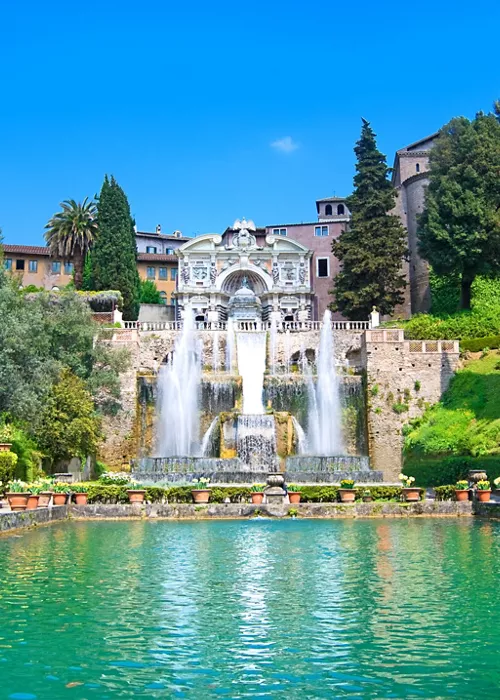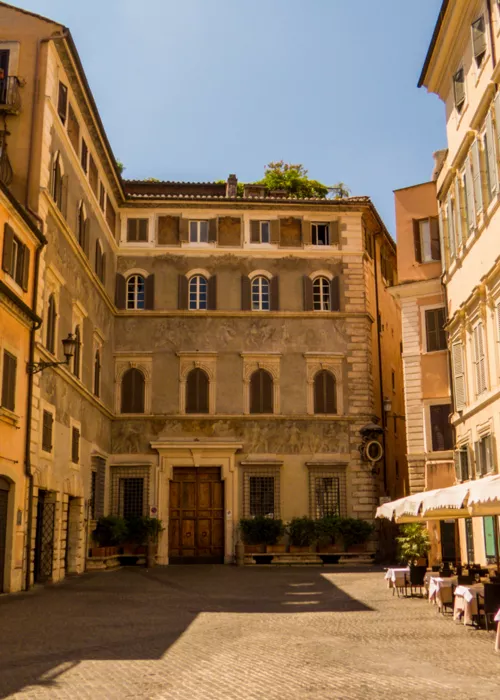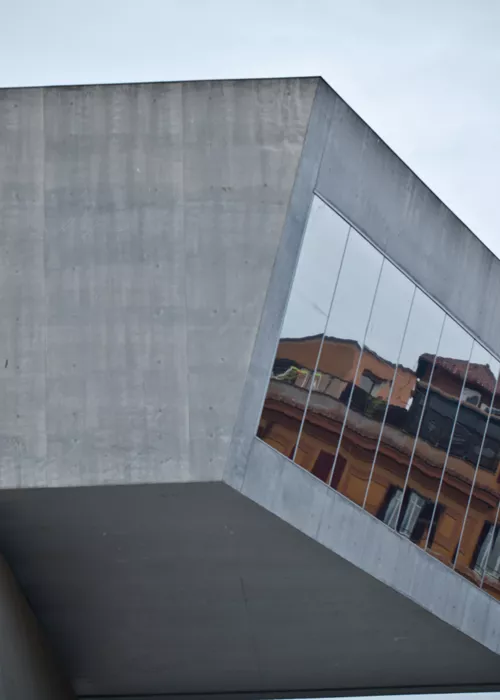Rome's Historic Cafes
2 minutes
Rome’s historic center is chock-a-block full of age-old cafes. Each recounting a piece of the story of the Eternal City.
Antico Caffè Greco
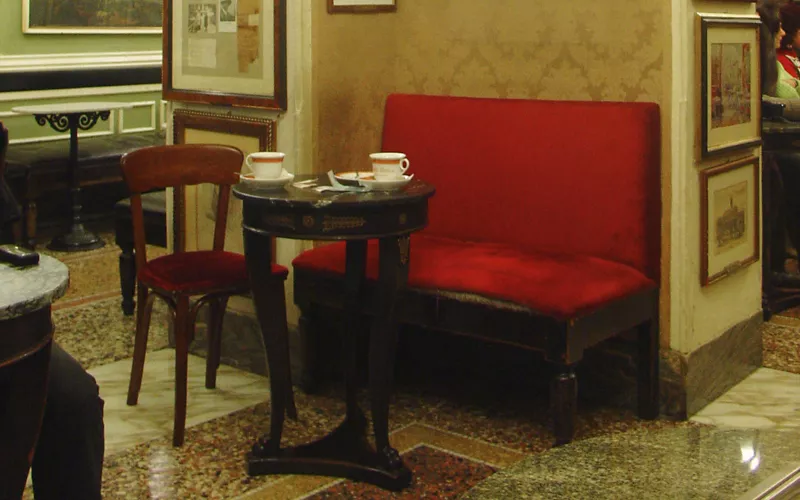
Some of the most charming, antique cafes here include Antico Caffè Greco, located in elegant Via dei Condotti, and considered to be Italy’s oldest after Caffè Florian in Venice.
Founded in 1760, Caffè Greco owes its name to its Greek founder, Nicola della Maddalena. A stomping-ground for both foreign and Italian artists and intellectuals since the 19th Century, and a common haunt for both high society and the cultural set of the 1960s and ‘70s, Greco counted such patrons as Schopenhauer, Liszt, Stendhal, Wagner and Welles. It was also the subject of a number of sketches and paintings in its day today they decorate the locale’s walls, thus rendering it one of the largest private art galleries open to the public in the world. Clients can enjoy the Caffè’s excellent coffee and ambience while admiring its more than 300 works.
Caffè Museo Atelier Canova Tadolini
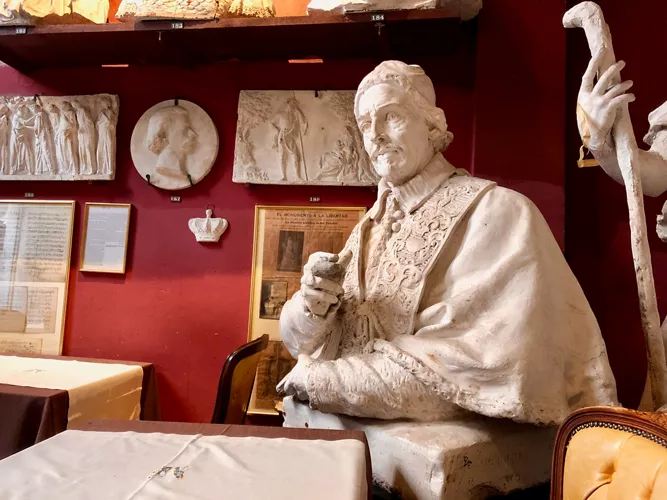
Just around the corner, on one of Rome’s most high-end shopping streets, Via del Babuino, is Caffè Museo Atelier Canova Tadolini: this was originally sculptor Antonio Canova’s studio, which he left to his favorite apprentice Adamo Tadolini. As it name implies, it is not just any café, but in part a Museum boasting a remarkable sculpture collection.
Caffè Sant’Eustachio
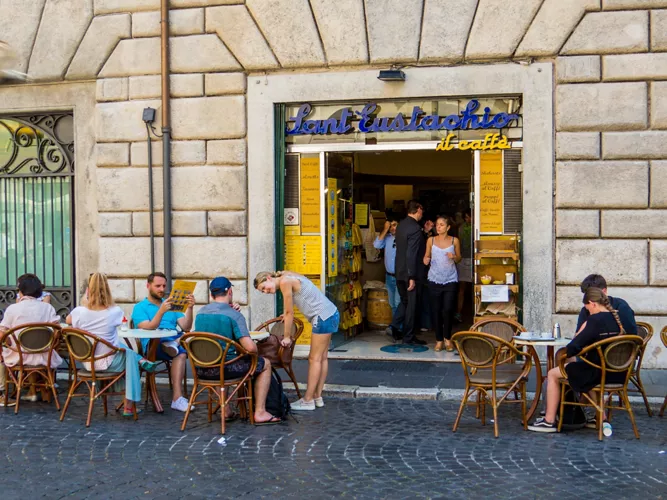
On a side of Piazza Navona, closer to the Pantheon and the Italian Senate is Caffè Sant’Eustachio. A longstanding coffee shop established in the 1920s, it boasts its original furnishings, flooring and interiors. Look for its deer emblem, the icon of St. Eustace.
Babington’s Tea Room
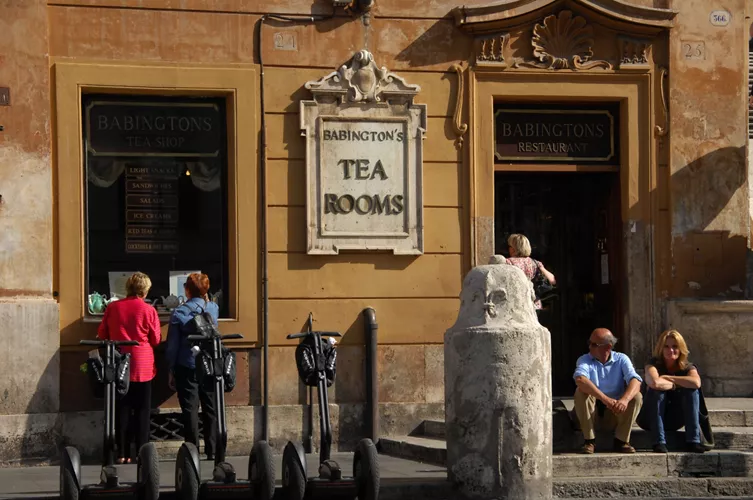
An historic establishment serving tea rather than coffee, Babington’s Tea Room lies just to the left when facing the beautiful Spanish Steps. It all began in 1893, when Britons Isabel Cargill and Anna Maria Babington decided to bring a little Britain to Rome, thus offering up a tea and reading room for English expats and anyone else who wanted to enjoy their leaves without having to purchase them at the pharmacy. Still alive and kicking today, Babington’s is known for its minimal fin-de-siecle décor, its teapots and porcelains on wooden tables, and its reserved atmosphere.

